
Amouranth accuses Pokimane of clout chasing amid xQc drama: 'I’m not trying to hate on her'
Amouranth signed a deal with Kick, a Twitch competitor, and accused Pokimane of pursuing clout while attempting to maintain credibility
2023-06-22 18:52
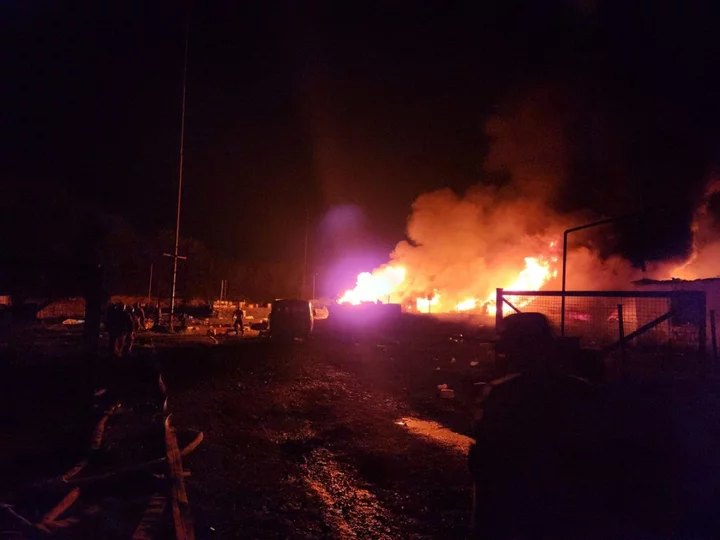
Nagorno-Karabakh: 20 dead and 300 injured in fuel depot explosion amid refugee exodus
At least 20 people have died and almost 300 suffered injuries in an explosion at a gas station in Nagorno-Karabakh, as ethnic Armenians attempted to flee the contested region. The cause of the blast outside the regional capital of Stepanakert remains unclear, but separatist authorities said 13 bodies have been retrieved from the blast site and seven others succumbed to their injuries. Nearly 290 people have been hospitalised, while scores of them remain in critical condition, the breakaway region's health department said. The blast occurred as residents were lining up to fuel their cars following the Azerbaijan military's attack on separatist forces, which has driven ethnic Armenians out of the region. "A strong explosion occurred in the gasoline warehouse near the Stepanakert-Askera highway,” the authorities said in a statement, according to the New York Times. “At the moment, rescue and medical operative groups are working on the spot." Yerevan on Tuesday said more than 13,500 people from the conflict zone have fled to Armenia this week so far. Read More At least 20 dead in gas station explosion as Nagorno-Karabakh residents flee to Armenia Thousands of ethnic Armenians flee Nagorno-Karabakh after Azerbaijan seizes control What is Nakhchivan? And after Nagorno-Karabakh, is this the next crisis for Azerbaijan and Armenia
2023-09-26 17:18
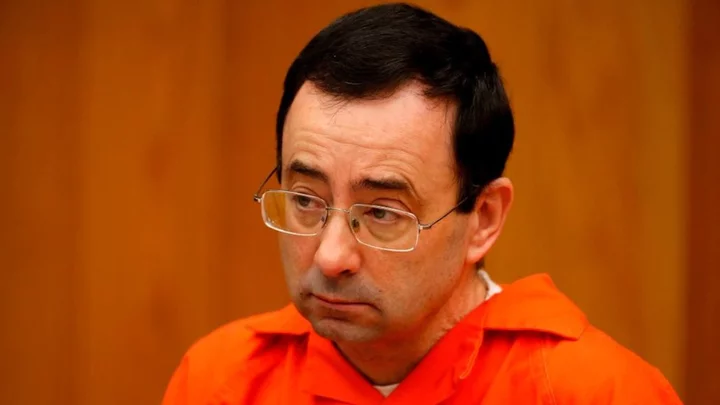
Sex offender Larry Nassar stabbed multiple times in prison
Nassar, who sexually abused gymnasts, is believed to have been stabbed in the chest and the back.
2023-07-10 22:48

Four Nasa volunteers are living on 'virtual Mars' for the next 12 months
Would you sign up to live in isolation for a year, all in the name of furthering scientific research? Probably not, we’re guessing, but that’s exactly what four NASA volunteers have agreed to do over the next 12 months. The participants will live in an environment created to simulate conditions on the surface of Mars as part of NASA's Crew Health and Performance Exploration Analog for 378 days. The people involved are research scientist Kelly Haston, structural engineer Ross Brockwell, emergency medicine physician Nathan Jones and US Navy microbiologist Anca Selariu. Sign up to our free Indy100 weekly newsletter The simulation has been built at the Johnson Space Center in Houston, Texas, and will see the four volunteers undertake a series of tasks as part of the exercise. Data collected over the next 12 months will help to inform future missions to send astronauts to Mars. During that time, the guests will take part in activities such as crop growing as well as simulated spacewalks and other operations. The 3D-printed hub they’ll spend their time in contains a kitchen, sleeping areas, two bathrooms as well as work and recreation spaces. The mission will also see the guests faced with simulated obstacles, which are designed to test responses to equipment failure, communication delays and other issues. Speaking at a recent briefing, the mission's principal investigator at NASA Grace Douglas said: “Thank you all for your dedication to exploration. Our best wishes go with you." Haston also spoke, calling her fellow participants an "amazing group of dedicated individuals who feel very passionate about space exploration and science." "The crew has worked so hard this month to get ready for this mission," Haston added. "It has been very special to be a part of such a tremendous group of scientists and specialists from a diverse set of backgrounds working together to bring CHAPEA 1, the first of three missions, to reality." Have your say in our news democracy. Click the upvote icon at the top of the page to help raise this article through the indy100 rankings.
2023-06-28 21:54

Ueda Holds Stimulus as BOJ Continues to Sidestep Tightening Wave
The Bank of Japan continued to defy global central bank trends by sticking with stimulus as it waits
2023-06-16 12:45

FBI joins search for teen sisters missing since late June
The FBI's Detroit Field Office said it is joining the effort to find two Black teen sisters missing from their adoptive parents' home since June.
2023-08-10 07:26

How did Kimberly Van Gundy die? Former NBA coach Stan Van Gundy mourns wife's death at 61
Former NBA coach Stan Van Gundy's wife Kimberly Van Gundy was a social activist and known for her love for animals
2023-08-24 09:49
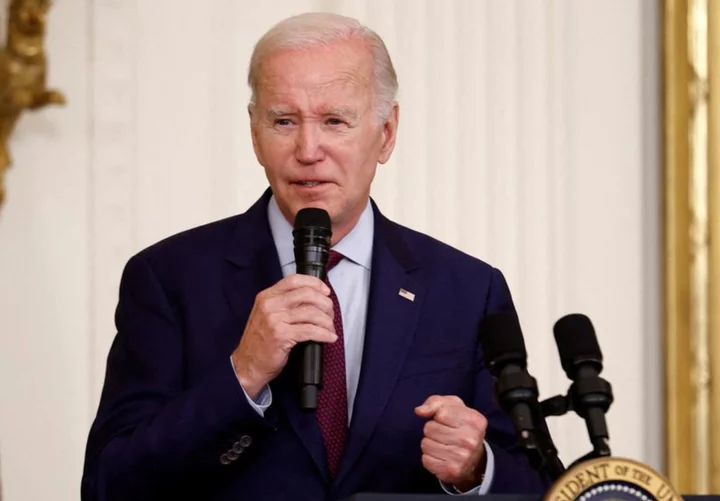
With China looming, Biden plans new Pacific islands summit after PNG no-show
By Jeff Mason and Kirsty Needham ABOARD AIR FORCE ONE/SYDNEY (Reuters) -U.S. President Joe Biden will arrange another summit of
2023-05-18 05:58

American, JetBlue urge US judge to allow them to keep codeshare arrangements
By David Shepardson WASHINGTON American Airlines and JetBlue Airways asked a U.S. judge late Friday to allow them
2023-06-10 08:23

Five Israelis held in Cyprus over alleged gang rape
Five Israeli tourists were remanded in Cyprus police custody on Monday in connection with an alleged gang rape of a young British woman in the popular...
2023-09-04 19:49

China expels Canadian diplomat in tit-for-tat response
China has announced the expulsion of a Canadian diplomat in retaliation for Ottawa's ordering a Chinese consular official to leave over alleged threats he made against a Canadian lawmaker and his family
2023-05-09 13:15

Supreme Court lets lawsuits over team doctor's sexual abuse proceed against Ohio State
The Supreme Court is leaving in place a decision that allows more than 230 men to sue Ohio State University over decades-old sexual abuse by a university doctor, the late Richard Strauss
2023-06-26 21:57
You Might Like...
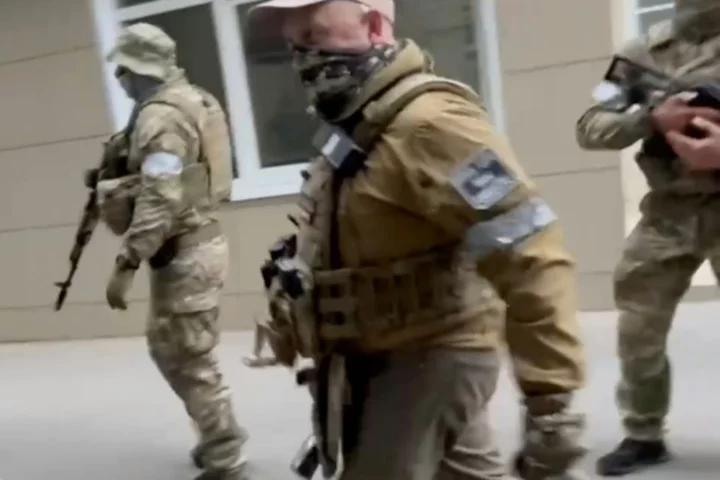
US, allies consult but tread carefully as Russia crisis unfolds

Niger regime leader 'open to explore diplomacy': mediators

Chile assumes pro tempore presidency of Pacific Alliance

Israel set to approve thousands of building permits in West Bank

Sex, lies and social media: Women face tough fight in African politics
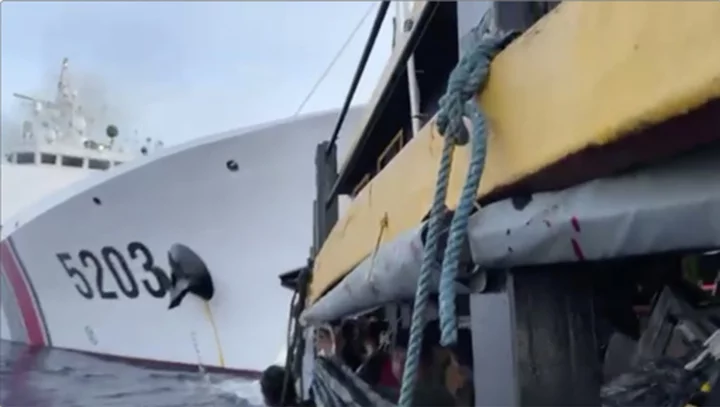
Philippines says a coast guard ship and supply boat were rammed by Chinese vessels at disputed shoal

87-year-old fends off home intruder, offers snacks to distract him

'Love K Pax': Internet cheers for Texas AG Ken Paxton as he sues Pfizer for allegedly providing low-quality meds to poor kids
